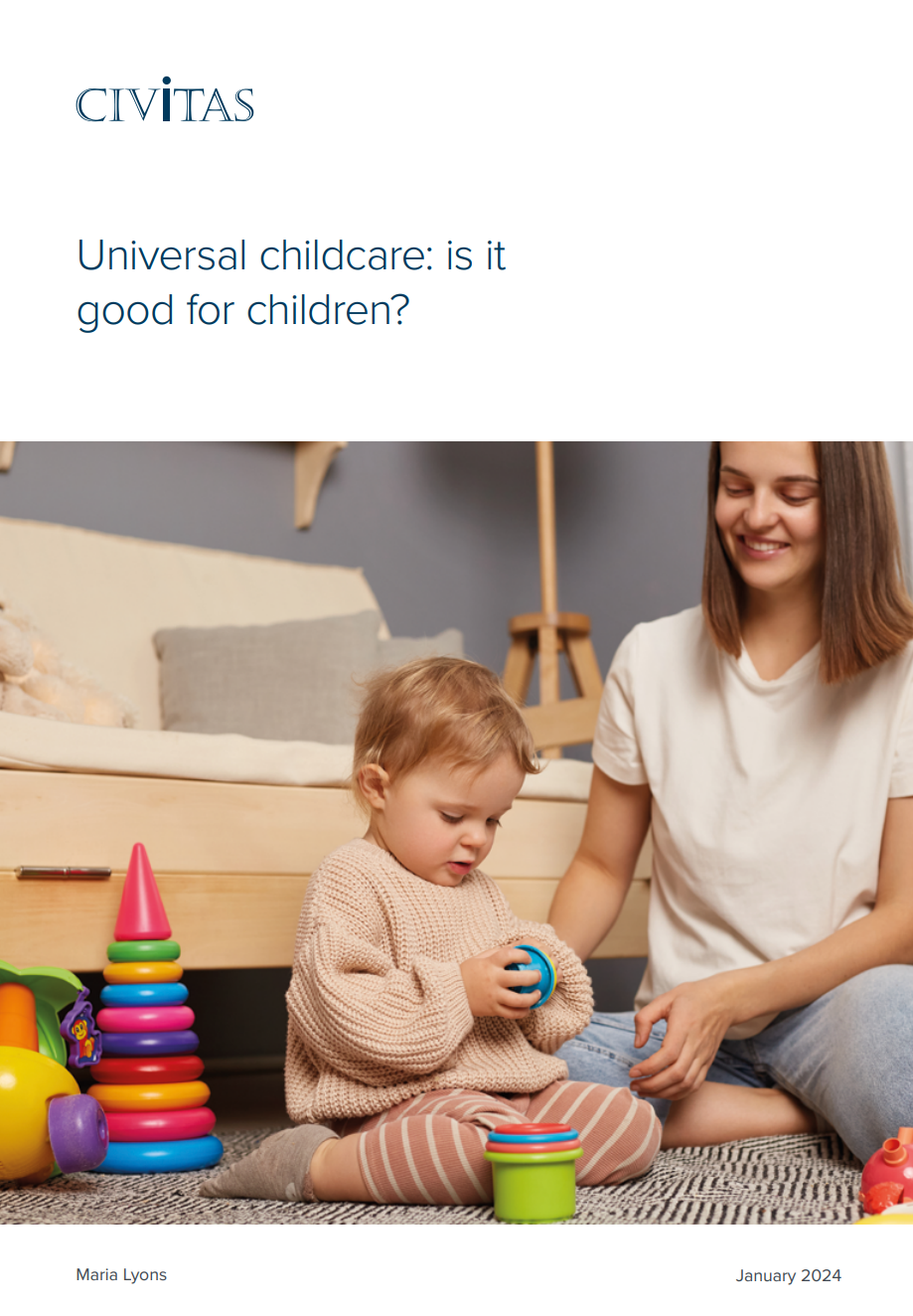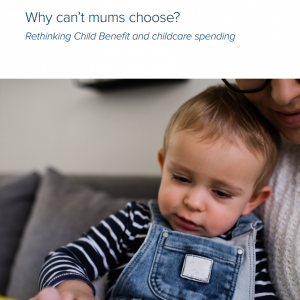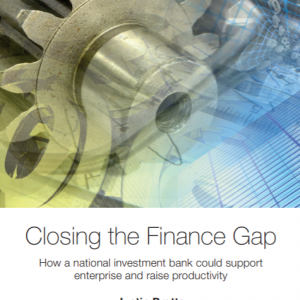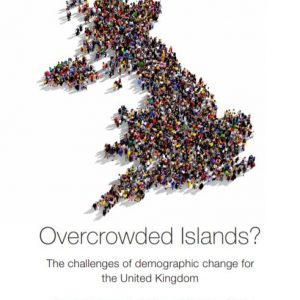Universal childcare
Is it good for children?
Maria Lyons, February 2024
All of the UK’s major political parties have recently declared their intentions to significantly expand state subsidies for childcare outside the home, including for babies from the age of nine months. It’s frequently said that universal “early childhood education” is a way to “give every child the best start in life”. It’s believed this will improve children’s educational outcomes, reducing social inequality; and also that it will empower women and boost the economy by enabling more mothers to go to work.
But what is the evidence for these claims? In this latest report, Maria Lyons takes an in-depth look at the academic literature from both the UK and abroad, and finds a worrying lack of support for many of the supposed benefits of universal childcare.
Damningly, of 40 studies reviewed in this report, not a single one was able to demonstrate a clear and lasting benefit for children under 3 of attending childcare rather than being cared for by their own parents. The claim that universal childcare from a young age gives every child “the best start in life” is simply not backed up by evidence.
What benefit is shown is mostly in children from the most deprived backgrounds. But, as Lyons points out, though this is typically presented as a positive for social mobility, it also means that “the policy has failed to benefit the majority of participating children”. Universal childcare is also not the most effective way to help disadvantaged children, whose parents are less likely to use subsidised childcare, and who might instead benefit more from targeted intervention.
At a time when the political consensus is in favour of babies and toddlers spending less time with their families and more time being “educated” by the state, this report provides a vital counter to claims about childcare that do not stand up to scrutiny.
£9.00





